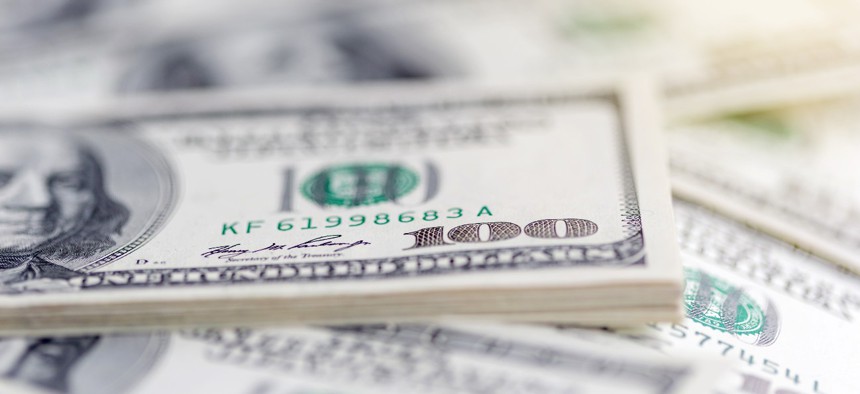
Viktoryia Vinnikava / EyeEm / Getty Images
The Biggest Raise in Two Decades, and More Pay News from the 2023 Budget Request
A weekly roundup of pay and benefits news.
With the release of the White House’s fiscal 2023 budget request Monday, President Biden proposed giving federal workers their largest pay increase in 20 years.
Under Biden’s plan, federal civilian employees and members of the military would receive an average 4.6% pay raise in 2023. That figure would mark a nearly 2 percentage point increase over 2022, and the largest raise since the Bush administration granted an equal boost in 2002.
The figure came as welcome news to some federal employee groups, while others have merely described it as a good “starting point,” urging congressional appropriators to back the proposal from Rep. Gerry Connolly, D-Va., and Sen. Brian Schatz, D-Hawaii, to provide federal workers with a 5.1% raise next year. Under that plan, feds would see a 4.1% across-the-board increase in basic pay, coupled with a 1% increase in locality pay.
Some pockets of the federal workforce could see windfalls in addition to the general pay raise, if Biden’s budget is enacted. As part of the White House’s plan to make the federal government a “model employer” and ease its recruitment and retention woes, the administration proposed a number of tweaks to federal compensation, including modifying critical position pay, establishing a new pay incentive for employees with critical skills, increasing the special rate limitation for mission-critical positions, and updating General Schedule pay setting for new hires.
Officials said that proposed changes to Health and Human Services Department coverage requirements for insurers, including requiring parity in coverage between behavioral health and medical benefits, would result in lower patient costs for mental health services as part of the Federal Employees Health Benefits Program.
A Big Potential Boost for Airport Screeners
The Homeland Security Department budget proposal for fiscal 2023 also contains big pay raise news for the workforce of the Transportation Security Administration.
TSA screeners, long receiving lower pay than their counterparts elsewhere in the federal government, could see sizeable pay increases after the Biden administration proposed increasing the agency’s funding by $1.6 billion over fiscal 2021 levels to pay for the agency’s effort to adopt the General Schedule pay system and provide employees with collective bargaining and civil service protections for the first time since the agency’s inception following the September 11, 2001, terrorist attacks.
The plan ends the diversion of one-third of revenue collected from airline passenger security fees to pay for unrelated government spending, a policy that amounted to $1.36 billion in user fees being diverted away from TSA in fiscal 2019 alone.
While it’s unclear what GS-level TSA screeners would be slotted into the General Schedule pay system, the Homeland Security Department noted in a budget document that Customs and Border Protection officers are currently paid nearly twice what TSA screeners receive.







